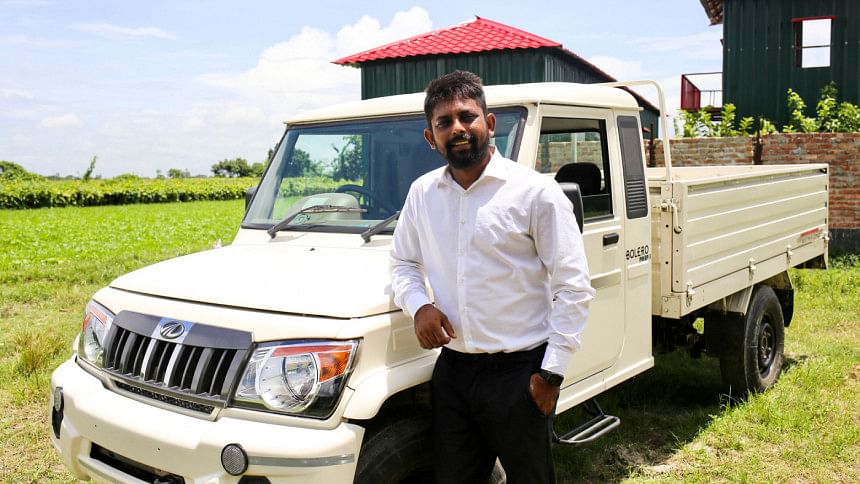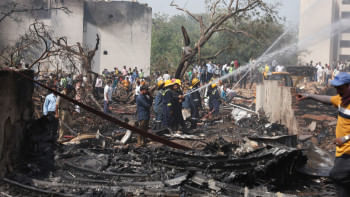Dreaming of a compassionate society

Four years ago, the journey of a 29-year-old Tajul Islam Likhon and his Dream Van became the talk of the town. Likhon started his van with an investment of only BDT 30,000. It has been five years since he started working in South Korea, when he decided to return home and start something on his own. His van sold bags for women, wallets, belts, shades, shoes, caps and even t-shirts that he painted himself.
Through this venture, he wanted to promote that no job is too small. All kinds of work that people do to earn their living deserve respect and recognition. "I find unemployment to be more embarrassing, if there's anything you should be embarrassed by at all," he says. "When we live outside of our country, we are open to working jobs that we find to be below our standards here. If we could get rid of that shame and instead try to find work in all possible sectors without discrimination, there would be much less people sitting jobless at home, more sectors explored and improved, and more money flowing into our economy every day."
Likhon utilised his resources to act as soon as the pandemic hit earlier this year. He has been supplying essential food items to some of the slums in Dhaka, where he is fondly called 'Joga Mama', after his initiative, 'Jogakhichuri'.
Jogakhichuri started off a while back. Soon after Likhon became well-known for his van in 2016, he decided to help people in any way he can. He noticed that many did not have good food options on a budget for their daily lunch. He began selling khichuri at only BDT 30, for people who were used to surviving on nothing but bread and bananas during their work days. With about 500g of food per plate at such an affordable rate, Jogakhichuri was an instant success.
While the initiative was paused for the weekends, Likhon was actively feeding underprivileged children on another end. People came forward and showed interest in helping these children, and so, they requested him to take the responsibility on their behalf, sometimes as a gesture of kindness. They began trusting him and depending on him for various social initiatives. As he got more involved in projects of this kind, he realised it was impossible to do everything on his own and decided to establish a foundation.
Likhon started the Dream Van Foundation to continue helping underprivileged children and residents of Dhaka's slums. In this global crisis, instead of a one-time ration pack, he distributes kilograms of rice, oil and other essentials every week, along with utensils. He assigns the responsibility of cooking to one person, so that he can work in an organised manner and maintain his liaisons with the people, even from a distance, to ensure that they have had at least one good meal for a day. The foundation also distributed iftar packages to those in need during Ramadan. "The people at the slums and the kids on the streets – they love me like no other. They are my family," says Likhon. He is also very active on his social media accounts, sharing posts that request for help, especially regarding blood donations.
Likhon's Dream Van has now been replaced with a pick-up truck to facilitate his plans. He has utilised a plot he owned to build an office for his foundation. Likhon regretfully adds that the only factor getting in the way of his headquarters being officially launched is the lack of an electricity connection, and requests the attention of the authorities.
Once launched, the new office for the foundation will be a factory and a rehabilitation centre, because he plans on employing people with disabilities. He recognises the difficulty these people face in not just finding a job, but in their everyday living as well. He will allow his workers to come and go as they please, and should they wish to retire early, he would provide them with living grounds complete with a bathroom and other necessary facilities.
When asked about how much has changed since the inception of the Dream Van, he seems pleased. "The youth are now so much more proactive and socially aware. I started small and now, I am able to achieve the caliber to help so many others along my way," concludes an optimistic Likhon.

 For all latest news, follow The Daily Star's Google News channel.
For all latest news, follow The Daily Star's Google News channel. 



Comments